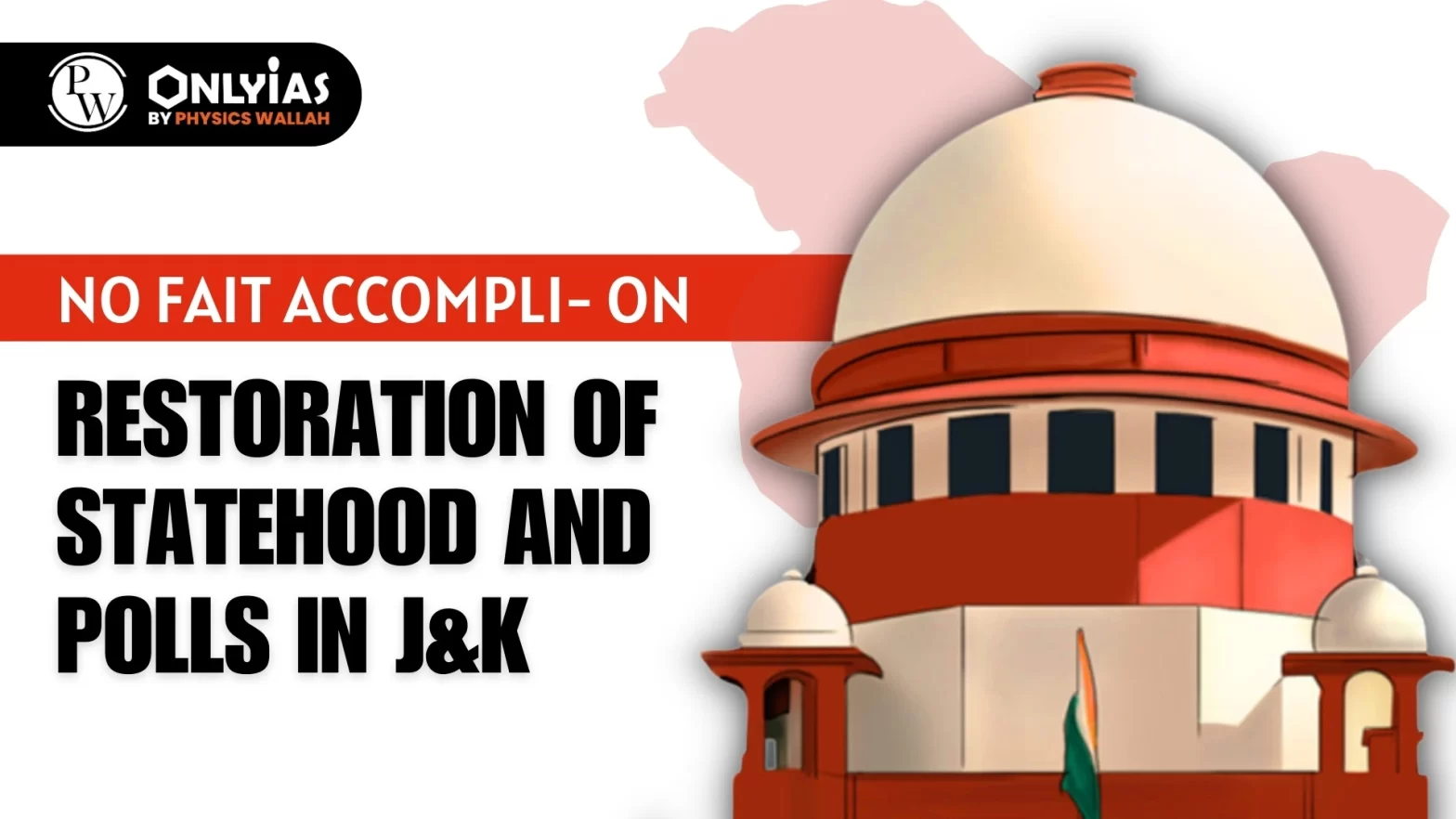Context: This article is based on an Editorial “No fait accompli: On the changes proposed in the Lok Sabha in Jammu and Kashmir” Which was published in the Hindu. Recently, the Lok Sabha passed the Jammu and Kashmir Reorganisation Amendment Bill 2023, and the Jammu and Kashmir Reservation Amendment Bill, 2023.
| Relevancy for Prelims: Jammu and Kashmir Reorganisation Amendment Bill, 2023, and the Jammu and Kashmir Reservation Amendment Bill 2023, and Article 370.
Relevancy for Mains: No Fait Accompli- On Restoration Of Statehood And Polls In J&K, Concerns in J&K and Possible Solutions. |
About the Recently Passed Bills:
- Increases the total number of Assembly seats from 107 to 114.
- Reservation of nine seats for Scheduled Tribes (a first).
- Empowering the Lieutenant-Governor to effect some nominations.
- To replace the term “weak and underprivileged classes (social castes)” in the J&K Reservation Act, 2004, enacted by the State legislature, with “Other Backward Classes” as declared by the UT.
- These Bills do not necessarily bring about any significant change.
Read more about the Jammu and Kashmir Reorganisation Amendment Bill, 2023, and the Jammu and Kashmir Reservation Amendment Bill 2023 here.
- Fait accompli refers to something that has already happened in the past and cannot be changed now.
|
What are the concerns regarding the situation in Jammu and Kashmir?
- Without an Elected Government: It has been more than five and a half years since an elected government collapsed and the Governor’s rule was imposed in Jammu & Kashmir amidst the suspension of the elected Assembly.
- This duration has seen the suspension of political and civil liberties of politicians, arbitrary arrests and detentions, communication shutdowns, impact on the media, and long power cuts.
- Revocation of Special Status with Bifurcation: Article 370 which provided for special status for the erstwhile State was removed and the State was bifurcated (Jammu and the Kashmir Valley made into a new Union Territory and Ladakh another).
- Changes without Judicial Assent: The constitutionality of the changes is still under question and the Supreme Court has reserved its verdict on it. However, the Union government brought the legislation that would impact the Legislative Assembly.
What Could Have Been Done?
- Wait for Apex Court’s Verdict: Wait could have been done for the Supreme Court’s verdict before passing any legislation.
The Path Ahead:
- Decision For the Welfare of People: Any change to the political life of J&K should be taken after considering the welfare of the citizens.
- Restoration of Elections and Statehood: There is a need for the restoration of the democratic process by holding popular elections and the restoration of its Statehood.
- Involvement of Elected Local Representatives: Any decision and action should be taken after considering discussions with elected local representatives.
- It would help in addressing the long-pending issues that have led to the persistence of militancy.
Conclusion:
Transitioning from Union Territory to statehood in Jammu and Kashmir requires a balanced strategy, including economic growth and fair governance. It’s crucial to also preserve the local culture, maintain effective diplomacy, and ensure the region’s integrity and security.
![]() 8 Dec 2023
8 Dec 2023


